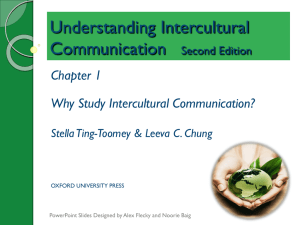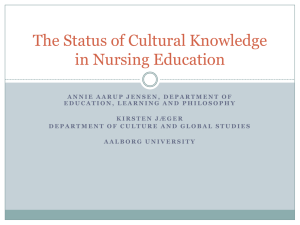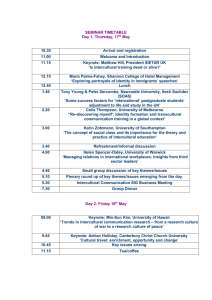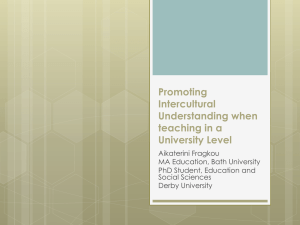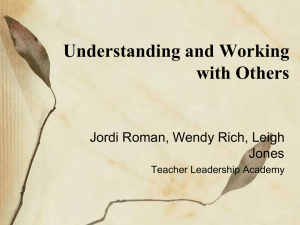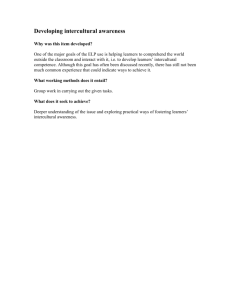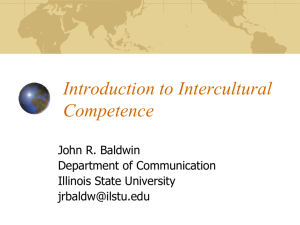ICC_StudentLearningOutcomes_041511
advertisement
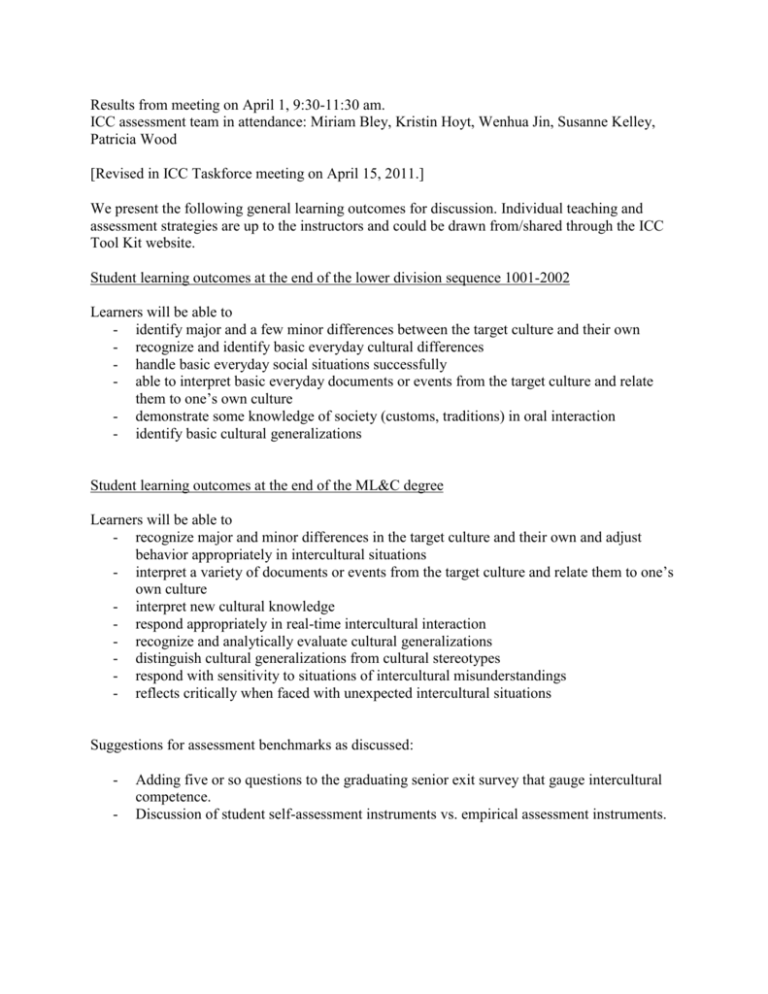
Results from meeting on April 1, 9:30-11:30 am. ICC assessment team in attendance: Miriam Bley, Kristin Hoyt, Wenhua Jin, Susanne Kelley, Patricia Wood [Revised in ICC Taskforce meeting on April 15, 2011.] We present the following general learning outcomes for discussion. Individual teaching and assessment strategies are up to the instructors and could be drawn from/shared through the ICC Tool Kit website. Student learning outcomes at the end of the lower division sequence 1001-2002 Learners will be able to - identify major and a few minor differences between the target culture and their own - recognize and identify basic everyday cultural differences - handle basic everyday social situations successfully - able to interpret basic everyday documents or events from the target culture and relate them to one’s own culture - demonstrate some knowledge of society (customs, traditions) in oral interaction - identify basic cultural generalizations Student learning outcomes at the end of the ML&C degree Learners will be able to - recognize major and minor differences in the target culture and their own and adjust behavior appropriately in intercultural situations - interpret a variety of documents or events from the target culture and relate them to one’s own culture - interpret new cultural knowledge - respond appropriately in real-time intercultural interaction - recognize and analytically evaluate cultural generalizations - distinguish cultural generalizations from cultural stereotypes - respond with sensitivity to situations of intercultural misunderstandings - reflects critically when faced with unexpected intercultural situations Suggestions for assessment benchmarks as discussed: - Adding five or so questions to the graduating senior exit survey that gauge intercultural competence. Discussion of student self-assessment instruments vs. empirical assessment instruments.
